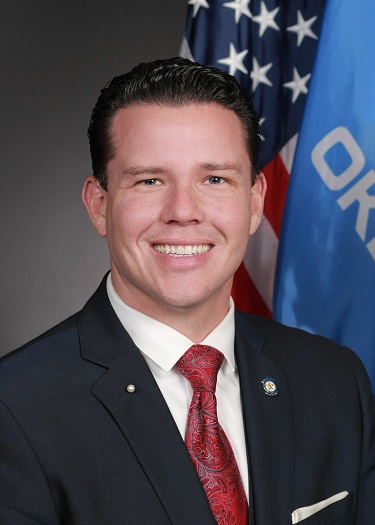In order to provide equal access and equal opportunity to people with diverse abilities, this site has been designed with accessibility in mind. Click here to view
Sen. Smalley supports amended Equal Opportunity Education Program bill
 Sen. Jason Smalley
Sen. Jason Smalley
Sen. Jason Smalley announced Monday that he will be supporting amended legislation to raise the cap on the Equal Opportunity Education Program when it comes back to the Senate. The Stroud Republican voted against the measure when it came through the Senate in light of his opposition to school vouchers but said the amended bill will help Oklahoma’s schools and students.
“Given the amendments, this truly is a scholarship program that helps low-income and special needs students get an education that better meets their needs,” said Smalley. “This bill will help encourage more investment in our schools and students through charitable giving.”
SB 407, as amended, proposes to increase the annual tax credit cap for contributions to eligible scholarship-granting organizations from $3.5 million to $15 million. The bill would also increase the tax credit cap for contributions to eligible educational-improvement grant organizations from $1.5 million to $15 million and creates two new types of donations under the second cap for public school districts and public school district foundations.
Smalley noted the amendments provide safeguards including –
Clarifying that public school foundations can directly administer and process tax-credit-eligible donations for improvement grants.
Setting a $100,000 tax credit cap for each school district to provide equal opportunity between rural and metro school districts.
Requiring additional information be reported to the Oklahoma Tax Commission and be published publicly to improve accountability and transparency.
A study of the tax credit by Oklahoma City University’s Meinders School of Business found that the state saved $1.39 for every dollar in tax credits issued in the 2017-2018. A total of $2.91 in school spending was saved for every dollar issued in tax credits when all local, state and federal school funding was included.
SB 407 passed the House Appropriations and Budget Committee last week and will now go before the full House. If approved, it will return to the Senate for reconsideration of the amendments.
 Oklahoma Senate
Oklahoma Senate

